Minister’s Year One Progress Report on Rowan’s Law (Concussion Safety), 2018
Read about our year one achievements in implementing the 21 recommended actions of the Rowan’s Law Advisory Committee.
Minister’s Message
To say Rowan’s Law has been my passion and one of the great gifts I have received in life is an understatement.
Gordon and Kathleen Stringer came to me in June of 2015 after a report into their daughter Rowan Stringer’s death was released by the Coroner. As their local MPP I began work—in a multi-partisan way—to usher in Canada’s first concussion legislation. Through a lot of hard work, determination and grassroots support, our local momentum in Nepean brought together political leaders, athletes, coaches, clinicians, parents and some of the best minds in neuroscience. Rowan’s passing as a result of second impact syndrome after she sustained multiple concussions was both tragic and unfair—but it did bring out the best in Ontarians. Those who were committed to preventing similar tragedies in the future. The broad support for our legislation meant Ontarians were ready to take concussions, their treatment and awareness seriously.
Today, as we release the first Rowan’s Law Progress Report, I would like to thank Gordon and Kathleen for their courage. I would also like to acknowledge the important leadership of the Barrhaven Scottish Rugby Club, of which Rowan was a member, for their unwavering support and determination. A great many people have given countless hours to ensure the success of Rowan’s Law and I am grateful for their support.
As Minister of Tourism, Culture and Sport I would personally like to thank Premier Doug Ford for supporting the work behind Rowan’s Law and for allowing me to come full circle on this initiative… from the Bill I created in Opposition, to a Law that I now have carriage of in our government.
As with the Rowan’s Law Advisory Committee Act on the day it passed on June 7th, 2016, I dedicate this report to Rowan’s sister, Cassie, who lost her sister and best friend.
To our fellow Canadians, follow our example—take action and adopt this legislation. By working together, we can change the culture surrounding concussions, and make the sport sector safer for all amateur athletes.
Lisa MacLeod
Minister of Tourism, Culture and Sport
No parent should ever have to go through what Rowan Stringer’s parents did. I’m so proud of the progress our government has made to improve concussion safety and awareness for amateur athletes. I want to thank Minister MacLeod and Minister Tibollo for their hard work and dedication to keep our kids safe while they’re playing sports and help save lives.
PREMIER DOUG FORD
Introduction:
Where We Started
Changing the Culture Around Concussions – Need for Action
On May 8th, 2013, 17-year-old Rowan Stringer, the talented captain of her high school rugby team, played for the third time in six days.
During the game, Rowan was tackled and hit in the head—also for the third time in six days. This time however, Rowan went down on the field, sat up briefly and then collapsed. She was taken to the Children’s Hospital of Eastern Ontario where four days later, on May 12th, 2013, she died.
Although Rowan had confided to a few of her close friends that she had been suffering from headaches and wasn’t feeling herself after the first two head hits, her coaches, parents and other adults around her were unaware that she had suffered from two undiagnosed concussions. Rowan should never have been playing that day. Her death was caused by second impact syndrome—catastrophic swelling in her brain, a result of reinjury before the first injury healed.
Rowan’s death shone a light on the need for action to change the culture around concussions and ensure that such tragedies are prevented in the future.
The recommendations from the Coroner’s Inquest in June 2015 were thorough, thoughtful and provided some element of closure for us regarding previously unknown facts leading up to Rowan’s death. They also blazed a path forward. Her death was preventable, we now had a template to change the culture around concussions in everyday life, to make player safety paramount in sport and to try to ensure that the circumstances leading to her death were not ever repeated again. As parents we were compelled to take that path.
GORDON AND KATHLEEN STRINGER, Rowan’s parents
In Spring 2015, a Coroner’s Inquest was held into the death of Rowan Stringer. The verdict, which contained 49 recommendations, was intended to help prevent similar deaths in the future, and noted the absence of concussion laws and of a coherent youth sport concussion system. The recommendations were directed to the federal government, as well as Ontario’s ministries, school boards and sport organizations, among others.
Key among the recommendations was that the Government of Ontario pass legislation, called “Rowan’s Law,” to govern youth sport in Ontario and establish a standard of practice for concussion prevention, identification and management. The Coroner’s Inquest established a clear and important goal, which was immediately adopted by the Ontario government. In 2016, a private member’s Bill by Nepean-Carleton MPP Lisa MacLeod was introduced and passed with all-party support in the Ontario Legislature. The Bill established the Rowan’s Law Advisory Committee Act, 2016, providing authority for establishment of a “Rowan’s Law Advisory Committee,” for a one-year term. The Advisory Committee was comprised of multi-sectoral experts in concussion safety and injury prevention. It was mandated to provide advice to government on the best ways to implement the Coroner’s jury’s 49 recommendations, and to develop other recommendations with respect to head injury prevention and treatment.
In September 2017, the report of the Rowan’s Law Advisory Committee was tabled in the legislature. In its report, the Advisory Committee noted…
…the single most important thing that must happen in Ontario, and in Canada (is that) the culture around head injuries must change.
The report included 21 recommendations for government action to improve concussion safety in amateur competitive sport, across the following five themes: awareness, prevention, detection, management and surveillance, in addition to the Rowan’s Law legislation. The report specified that the government’s implementation of the recommendations could be achieved through a combination of legislation, and policies/ programs.
In response to the Committee’s report, the government announced its intent to introduce concussion legislation that would govern organized amateur sport throughout Ontario. The government also committed to working with sport leaders across the province to review and build on the 21 recommendations and make the sport system safer for everyone.
Tasked to lead the implementation of the Advisory Committee’s 21 recommendations, the Ministry of Tourism, Culture and Sport worked closely with its key ministry partners to outline a three-year implementation plan. This plan first prioritized introducing broad legislation that would meet most of the legislative objectives set out by the Committee.
The plan also included putting measures in place to enhance concussion awareness and establish minimum concussion requirements within organized amateur competitive sport in schools, post-secondary institutions and community sport organizations. Subsequent phases will allow for further assessment on how best to implement the remaining recommendations of the Committee. In March 2018, Rowan’s Law (Concussion Safety), 2018 (“Rowan’s Law”) was passed with unanimous support from all parties and received Royal Assent. The legislation establishes provisions for mandatory concussion education; mandatory concussion codes of conduct; mandatory removal-from-sport protocols; progressive return-to-sport protocols; and the declaration of an annual concussion awareness day (Rowan’s Law Day), on the last Wednesday in September. Only Section 5 of the Act, the annual Rowan’s Law Day, was proclaimed at this time, with the inaugural Rowan’s Law Day taking place on September 26th, 2018.
Amendments to the Education Act, passed at the same time as Rowan’s Law, provide the Minister of Education with authority to establish, and require school boards to comply with concussion policies and guidelines that are consistent with Rowan’s Law.
Rowan’s Law also includes a provision that requires the Minister of Tourism, Culture and Sport to prepare an annual report about the progress made in implementing all or some of the Advisory Committee’s 21 recommendations, beginning this year on Rowan’s Law Day— September 25th, 2019.
This is the Minister’s first public progress report, which provides an overview of accomplishments in year one of its implementation. This progress report is a symbol of our government’s ongoing commitment to work with sport, education and health sectors to implement the Committee’s recommendations.
Twenty One Recommended Action Items
Year One: ELEVEN Recommendations Completed
- Legislation
- Evaluation of PPM 158 in schools
- Training for coaches
- Coach’s Toolkit
- Concussion training for teacher candidates
- Re-branding Concussion Portal
- Awareness campaign
- Annual concussion awareness education event in schools
- Mandatory concussion education for all teachers
- Creation of Rowan’s Law Concussion Working Group
- Concussion Codes of Conduct
Year Two: FIVE Recommendations Underway
- Standards and accountability for fields of play
- Concussion Spotter at all games and practices
- Develop and deliver concussion education in schools for all students
- Enhancement of concussion education for health care professionals
- Work with Indigenous Leaders to support dissemination and implementation of concussion management
Year Three: FOUR Recommendations Under Analysis
- Public reporting on concussion incident data
- Collection of data about removal from sport at field of play
- Investment in electronic data collection/sharing tool about incidents at field of play
- Creation of Special Fee Codes in OHIP
ONE ONGOING Recommendation
Federal government to play a leadership role around concussions in schools and non-school environments
Executive Summary
Significant progress has been made since Rowan’s Law (Concussion Safety) 2018 passed in the legislature. Following this landmark, the government developed a three-phased approach to implement the 21 recommended actions of the advisory committee. Since then, the government has worked alongside partners within government and through consultation with stakeholders and the public, to help shape the roll-out of Rowan’s Law. To date, 11 actions are completed, 5 underway, 4 require further scoping and 1 is ongoing as the government enters year two of its implementation plan.
Highlights of Accomplishments
After extensive public consultations, the government developed and made a regulation that provides details on the legislative requirements under the Act. On July 1st, 2019, sections of Rowan’s Law were proclaimed, and corresponding parts of the regulation related to the review of concussion awareness resources and concussion codes of conduct came into effect. To meet its obligations under the legislation and to support sector implementation of Rowan’s Law, the government developed Concussion Awareness Resources and a sample Concussion Code of Conduct template which can be accessed at Ontario.ca/concussions.
This spring, a multimedia campaign that aims to build awareness of the signs and symptoms of concussions was launched. The campaign launched with the “Hit. Stop. Sit.” concussion safety video that appeared in cinemas throughout the spring and summer months and was supported by social media and print resources. Our government also introduced new concussion webpages with information about Rowan’s Law and concussion safety.
The Rowan’s Law Concussion Working Group is comprised of many of the original members of the Rowan’s Law Advisory Committee and supplemented with representatives from other key sectors. The Working Group was convened in early 2019, as a response to a recommendation in the Report, and to support government in the implementation of the other recommendations.
In preparation for Rowan’s Law Day 2019, posters and other tools to raise awareness about concussion safety were disseminated to public schools, post-secondary institutions, community centres and municipalities to help raise awareness about concussions and support Rowan’s Law Day events throughout the province.
The government has undertaken a review and analysis of several other recommendations made by the Committee, some of which are already underway, including: the creation of a Coach’s Toolkit; discussions about standards for fields of play; and, annual concussion training for students, teachers and teacher candidates, among others.
As year two of the government’s implementation plan begins, the second phase of Rowan’s Law pertaining to detection and management will come into effect on July 1st, 2020. This includes the requirement for sport organizations to establish removal-from-sport and return-to-sport protocols for athletes suspected of or diagnosed with a concussion. Sample templates, developed in partnership with Parachute Canada, will be made available on the government’s concussion webpages.
The Ministry of Health has also been working with partners to determine a process for medical diagnosis and clearance for suspected concussions by health care professionals prior to return to play/learn.
Continued review and implementation of the remaining recommendations made by the Rowan’s Law Advisory Committee will be ongoing.
Year One Achievements:
Where We Are
Legislation
In response to the coroner’s recommendation that a law would bring “a consistent approach to concussion” across the province, the Advisory Committee proposed Rowan’s Law.
from the Report of the Rowan’s Law Advisory Committee
The Act and the Regulation
The goal of Rowan’s Law (Concussion Safety), 2018 is to protect amateur athletes by improving concussion safety on the field and at school. Key elements of the Act include:
- Annual mandatory concussion education for athletes, parents/guardians, coaches and others before registering or serving within a sport organization;
- Concussion Codes of Conduct for sport organizations that set out rules of behaviour to minimize concussions while playing sport;
- Removal-from-Sport protocols for sport organizations to ensure that an athlete is immediately removed from sport if they are suspected of having sustained a concussion; and
- Return-to-Sport protocols for sport organizations to ensure that an athlete who has been concussed follows the appropriate steps before returning to sport.
Rowan’s Law and related amendments to the Education Act, aim to protect amateur athletes and students by establishing mandatory requirements for sport organizations and school boards about concussion education, prevention, detection and management.
The government first needed to have a regulation in place that provides specific details and rules for sport organizations for the key elements of Rowan’s Law to take effect. In developing the regulation under Rowan’s Law, the Ministry of Tourism, Culture and Sport worked with its key ministry partners and invited feedback from impacted sectors through two public consultations.
The first consultation took place in spring 2018 when the government posted a consultation paper seeking feedback to help inform the nature and content of future regulations, policies and guidelines. This consultation received close to 500 submissions from sector stakeholders and members of the public. The second consultation was held in spring 2019 and sought public input through a consultation paper on the draft regulation under Rowan’s Law. The draft regulation and consultation paper were accessed approximately 3,000 times through the Ontario Regulatory Registry and responses provided were from the education, healthcare, municipal, post-secondary and sport sectors. Input was also provided by the Rowan’s Law Concussion Working Group.
Overall, the consultations informed the details for the following key areas of the regulation:
- Scope (set age of athletes, types of sports, types of sport organizations, etc.)
- Concussion Awareness Resources (content, additional individuals to review, method of confirmation, etc.)
- Concussion Code of Conduct (minimum components for sport organizations, method of confirmation, etc.)
- Removal-from-Sport and Return-to-Sport Protocols (minimum requirements for sport organizations, etc.)
- Manner of Implementation of Regulation (phased implementation)
The final regulation was posted on June 4th, 2019 and can be found on e-Laws: Ontario.ca/laws/regulation/r19161.
The Act and the regulation are being implemented in phases. On July 1st, 2019, the first phase of the Rowan’s Law and its regulation came into effect. This includes sections relating to awareness and prevention. The Act and regulation specify that sport organizations must establish a Concussion Code of Conduct. They must also receive confirmation from all athletes under 26 years of age, parents of athletes under 18, coaches and team trainers, that they have reviewed one of the Concussion Awareness Resources, and the sport organization’s Concussion Code of Conduct annually prior to registration. The only confirmation required for officials prior to serving with a sport organization is the review of the Concussion Awareness Resources. For post-secondary institutions, any athlete, regardless of age, must confirm their review of both Concussion Awareness Resources and the institutions’ Concussion Code of Conduct when registering to participate in an amateur competitive sport.
The second, and final, phase of implementing Rowan’s Law and its regulation requiring sport organizations to develop and implement their own removal-from-sport and return-to-sport protocols will come into effect on July 1st, 2020.
Amendments to the Education Act
School boards across Ontario recognize Rowan’s Law will help save lives and keep students’ brains safe. This important law will help prevent and manage concussions by providing school boards with essential tools to prevent concussions when students play sports, or are engaged in other activities. By mandating concussion education at publicly funded schools, Rowan’s Law ensures students will be increasingly aware of their safety, and will be more likely to report an injury to their teachers, coaches, or parents when one occurs.
WARREN HOSHIZAKI, Director of Education at the District School Board of Niagara and member of Rowan’s Law Concussion Working Group
Amendments to the Education Act, also proclaimed on July 1st, 2019, give the Minister of Education the authority to establish and require school boards, school authorities, and provincial and demonstration schools to comply with concussion policies consistent with Rowan’s Law. These amendments also give the Minister of Education the authority to make regulations, consistent with Rowan’s Law, regarding concussions in students of private schools, including First Nations operated and federally operated schools.
The Ministry of Education’s policy on concussion, Policy/Program Memorandum (PPM) 158: School Board Policies on Concussion, has been in effect since 2015. PPM 158 helps to ensure the safety of students by directing all school boards, school authorities and provincial and demonstration schools to have a local concussion policy that includes requirements on awareness, prevention, identification, management and training. While largely consistent with Rowan’s Law already, PPM 158 is being updated with new mandatory requirements that will strengthen concussion safety and will be released as a binding policy in the 2019–20 school year.
While PPM 158 is not mandatory for private schools or First Nations-operated and federally operated schools, the Ministry of Education will provide support to these schools by disseminating concussion-related public education resources and the revised PPM 158. In addition, it will provide information and answer questions related to PPM 158 and Rowan’s Law.
Concussion Awareness Resources
Parachute, as the author of the Canadian Guideline on Concussion in Sport and leaders of Canada’s national Concussion Harmonization Project, applauds the Government of Ontario for enacting Rowan’s Law to ensure concussion protocols and education are mandatory for the province’s publicly funded schools and for sport organizations that deliver amateur competitive sports in higher risk sports. Our partnership with the province to develop concussion awareness resources that support Rowan’s Law has ensured these resources are aligned with the Canadian Guideline.
PAMELA FUSELLI, President and CEO of Parachute
One of the key requirements under Rowan’s Law is the mandatory annual requirement for amateur athletes, parents/guardians of athletes under 18, coaches, officials and team trainers to review Concussion Awareness Resources and Concussion Codes of Conduct where applicable. The Act also specifies that it is the responsibility of the Government of Ontario to ensure that these Concussion Awareness Resources are made available to the public.
Earlier this year, Parachute Canada was selected to work with the government to develop Concussion Awareness Resources through an open and competitive procurement process. Parachute is a national leader in injury prevention and has ensured that all resources developed for Rowan’s Law align with the Canadian Guidelines on Concussion in Sport.
The organization has worked closely with government to develop a suite of government approved Concussion Awareness Resources in print and video, as well as an e-learning module to assist sport organizations in meeting their obligations under Rowan’s Law.
In May of this year, Concussion Awareness Resources: e-booklets were made available on the government’s concussion webpages in both English and French. The e-Booklets have also been translated into an additional 12 languages and are now available online. The e-Booklets will also be made available in seven Indigenous languages in the coming months.
Rowan’s Law Day
The first annual Rowan’s Law Day was held on Wednesday September 26th, 2018. The day was observed by school boards, sport organizations, and post-secondary institutions across Ontario.
Government-led communications activities included a Minister’s statement delivered in the Legislature and posted on the government’s YouTube channel, a province-wide news release, a downloadable fact sheet, and social media. Metrics from the day indicated that there was high social media engagement (1.5% Twitter, and 4% Facebook), a moderate number of unique visitors to the Rowan’s Law Day webpages (437), and moderate media coverage.
This year, Rowan’s Law Day will recognize the hard work of ministry and sector partners and mark Ontario’s progress on implementing the committee’s recommendations. We are also calling on other jurisdictions to implement Rowan’s Law—or introduce legislation which mirrors Rowan’s Law—to help change the concussion culture across Canada.
Activities planned for this year include community and school-led events, social media and continuation of the successful Rowan’s Law awareness campaign.
Surveillance
It has been said that you can’t manage what you can’t measure, and this is as true of concussions as it is with anything else.
from the Report of the Rowan’s Law Advisory Committee
Evaluation and Compliance with PPM 158
The provincial policy on concussion safety for the education sector (Policy/Program Memorandum 158: School Board Policies on Concussion) has been in effect since 2015. School boards already have local policies in place that include requirements on concussion awareness, prevention, identification, management, and training that are largely consistent with Rowan’s Law.
Following proclamation of the Education Act amendments and engagement with school boards, PPM 158 is being updated to be consistent with Rowan’s Law and will be re-issued as a mandatory policy for school boards, school authorities, and provincial and demonstration schools in the 2019–20 school year.
In the interim, the Ministry of Education has continued to work with school boards to provide information and support on policy implementation. As part of those efforts, the Ministry of Education funded a research project led by Dr. Charles Tator, Emeritus Scientist, Krembil Research Institute, member of the Rowan’s Law Advisory Committee and the Rowan’s Law Concussion Working Group, on the implementation and impact of PPM 158.
The research project includes an analysis of the implementation successes and challenges of PPM 158 at the school level. It also includes an analysis of the impact of PPM 158 on concussion-related visits to emergency departments and physician offices by children aged 4-18 years in Ontario between 2003 and 2017. The Ministry of Education received the final report in Summer 2019 and the findings are informing the approach to supporting implementation of the updated PPM 158.
Prevention
The simple truth is, as long as people play sports, particularly certain kinds of sports, there are going to be times when they get hit in the head or the body.
from the Report of the Rowan’s Law Advisory Committee
Establishment of a Concussion Code of Conduct
Under Rowan’s Law, a sport organization must establish a Concussion Code of Conduct that sets expectations about conduct within its organization. Each Concussion Code of Conduct must contain the minimum mandatory elements set out by the regulation. Sport organizations offering activities falling under the scope of Rowan’s Law must ensure that their athletes, parents of athletes under 18, coaches, and team trainers confirm that they have reviewed their Concussion Code of Conduct prior to registration.
To support the implementation of Rowan’s Law, the Government of Ontario worked with Parachute Canada to develop a sample Concussion Code of Conduct template to be used or adapted by sport organizations. The template is currently available on the government’s concussion webpages.
Detection
One of the biggest challenges in dealing with concussions is identification—how do we know when a player is concussed?
from the Report of the Rowan’s Law Advisory Committee
Concussion Training for Coaches
In year one of the implementation plan, the Ontario government worked with the Coaches Association of Ontario (CAO), Ontario Physical and Health Education Association (Ophea) and other partners to help educate coaches about Rowan’s Law. They also encouraged coaches to complete specific training in concussion identification and management, in addition to the now mandatory annual review of the government’s approved Concussion Awareness Resources.
Since September 2018,13,898 Ontario coaches have completed National Coaching Certification Program (NCCP) Making Head Way, the Coaching Association of Canada’s (CAC) evidence-based, e-learning training module on concussions. This in-depth 90-minute module is available at no cost to coaches and is updated regularly to reflect Canadian and international concussion guidelines.
Management
As previously noted, it is extremely important that we have data available to track the number of concussions that are occurring and assess the manner in which we are responding.
from the Report of the Rowan’s Law Advisory Committee
Coach’s Toolkit
Coaches play a vital role in ensuring participants in sport have a safe environment to play and be active. The implementation of Rowan’s Law is helping coaches do just that, by creating a consistent and collaborative approach to preventing, suspecting, and managing concussions. When coaches, parents, athletes, trainers and the greater sport community are all on the same page regarding concussions, sport is made safer. The Coaches Association of Ontario will continue to support Rowan’s Law and coaches through the Coach’s Concussion Toolkit. The Toolkit provides current and approved resources, as well as access to a free National Coaching Certification Program concussion training that reflects Canadian and international concussion guidelines.
MERCEDES WATSON, Director, Coach and Partner Development at the Coaches Association Ontario (CAO)
To ensure coaches have the tools and resources that can be easily accessed when they need them the most, the government established a Coach’s Concussion Toolkit Working Group earlier this year. The Working Group is made up of representatives from the sport and education sectors as well as partner ministries.
The Coach’s Toolkit contains relevant tools and material to support the use of consistent concussion protocols across all sport settings by educating coaches on how to prevent concussions, how to identify a concussion, and what to do if a concussion is suspected. It is aligned with the Canadian Guidelines on Concussion in Sport, is updated regularly and is available electronically at CoachesOntario.ca/concussions
Awareness
To be successful in bringing about any kind of culture change when it comes to concussion in amateur sport, it will be through increasing awareness about, and increasing the level of knowledge around, head injuries and concussions.
from the Report of the Rowan’s Law Advisory Committee
Rowan’s Law Concussion Web Pages
On May 13th, 2019, the Government of Ontario launched the Rowan’s Law Concussion webpages, Ontario.ca/concussions. The webpages aim to increase public awareness on concussions, to share Rowan Stringer’s story more broadly and to serve as a repository for all tools, resources and links related to concussion awareness, prevention, detection, management, and surveillance. This includes the Minister’s approved Concussion Awareness Resources and sample Concussion Code of Conduct templates that sport organizations are mandated to implement. These webpages will be updated regularly, as ongoing efforts to promote concussion prevention in Ontario progress.
Integrated Awareness Campaign
In Spring of 2019, the Government of Ontario launched the first phase of a sustained, multi- channel, integrated campaign with the goal of increasing public awareness of the signs and symptoms of a concussion. The anchor of the campaign is a new icon that symbolizes concussion awareness and safety that permeates all elements of the campaign. The tagline “Hit. Stop. Sit.” aims to encourage athletes not to play through a suspected concussion. The goal is to have the icon become clearly recognizable over time.
The campaign is spreading the message by creating a movement and building a sustainable brand through promotion of the Ontario.ca/concussions webpages in all campaign materials. Phase one of the awareness campaign included social media, digital ads and a powerful public service announcement video that appeared in cinemas through to August, was broadcast during key June sporting events on Sportsnet, and was posted on YouTube.
The social media component of the campaign was supported by paid posts, leveraging Ontario athletes, sports celebrities and Working Group members as digital influencers, and television and radio appearances by Hockey Hall of Famer and concussion advocate, Eric Lindros.
Phase one was extremely successful in raising awareness among Ontarians. The hashtags #RowansLaw
and #HitStopSit
went viral, with almost 50% of references to the campaign incorporating both. Within social media and online, there was strong awareness among Ontarians for concussion safety.
And following the launch of the campaign, Rowan’s Law was the number one Google Ads key word—meaning the general public were googling Rowan’s Law.
The campaign continued to sustain momentum after July 1st, 2019 with the top-searched term being concussion symptoms.
The public service announcement video, which played in cinemas and received more than 450,000 views on YouTube alone, continued to have a high recall, particularly among adults 45–54 years old. Visitors to the Ontario.ca/concussions webpages spent an average time of four minutes on the page. This length of time is 45% above the government average and indicates that people are reading and engaging with the content.
In the Fall, the second phase of the campaign will include the video and digital ads appearing on post-secondary campuses, in recreation centres and on GoodLife Fitness TV. As well, the Rowan’s Law icon and “Hit. Stop. Sit.” tagline will be placed on rink boards in community arenas across the province, and posters and stickers will be distributed to schools and post-secondary campuses.
Training in Coaching Principles, including Concussion Awareness for Teacher Candidates
In the 2018–19 school year, the Ministry of Education included concussion-related content in workshops delivered as part of the Professional Development Program for Teacher Candidates. The Professional Development Program for Teacher Candidates is offered to teacher candidates across all faculties of education in Ontario. It provides tools and resources to inform future teachers about changes in the curriculum and ministry priorities. Based on feedback from teacher candidates who participated in the 2018–19 program, there are plans to provide interactive workshops on student injury prevention, which could include a focus on concussion safety in the 2019–20 school year.
Develop and Deliver Concussion Education Annually in Schools for All Students
The Health and Physical Education curriculum, Grades 1–8 (HPE), which has been issued for the 2019–20 school year, was updated to include mandatory learning about concussions in every grade. The 2019 Addendum to The Kindergarten Program was also issued for the 2019–20 school year and includes new learning on concussions through an update to the specific expectation 24.1.
The Ministry of Education is also developing concussion learning modules for students in elementary and secondary schools. The modules are intended to support student learning connected to the Health and Physical Education curriculum. The learning modules would also be accompanied by an educator guide to support concussion education. The modules are expected to be released in 2020.
Annual Concussion Awareness Education Events in Public Schools
PPM 158 currently directs school boards to include strategies for sharing information on the seriousness of concussions, and on concussion prevention, identification, and management, with students, parents, board employees, administrators, educators, school staff and volunteers.
In advance of the second annual Rowan’s Law Day, the Ministry of Education also collaborated with the Ministry of Tourism, Culture and Sport to disseminate posters and other tools to all public elementary and secondary schools across Ontario, to raise awareness about concussions.
Annual Education Modules—Ontario Physical Activity Safety Standards in Education—for Teachers
A concussion e-Iearning module for educators, administrators and support staff has been developed. The module promotes concussion safety, which includes strategies and resources to assist educators, administrators, and school staff with concussion prevention, identification, and management.
Additional Actions
Overarching items aimed at promoting excellence in concussion awareness, prevention, detection,management and surveillance for all amateur athletes and across Canada.
from the Report of the Rowan’s Law Advisory Committee
Work with the Federal Government to Develop a National Harmonized Approach
As the government initiates change to the culture around concussions in Ontario, it continues to work with the Federal, Provincial/Territorial (F-P/T) Working Group on Concussions to implement a harmonized approach to concussions through the Framework for Action for a Harmonized Approach on Concussions, and the Canadian Guidelines on Concussion in Sport. This work includes providing recommendations about the dissemination of harmonized tools to ensure alignment and incorporate learnings and best practices as Ontario moves forward with the implementation of Rowan’s Law.
Rowan’s Law Concussion Working Group
Rowan Stringer was an amazing individual who brought joy and love to those who knew her. Through her family, Rowan is continuing to have a powerful and positive impact on the health and well-being of athletes and citizens as sports, education, medicine and the general public come together as one team to create awareness and support for concussion recognition and management.
FRAN RIDER, C.M.,OONT, President, Ontario Women’s Hockey Association and member of Rowan’s Law Concussion Working Group
In February 2019, the Government of Ontario created the Rowan’s Law Concussion Working Group to ensure coordination, support implementation, and provide oversight on the roll- out and implementation of the Rowan’s Law initiative. The Working Group brings together an array of expertise related to concussion awareness, prevention and best practices, and is comprised of many of the original members of the Rowan’s Law Advisory Committee. To date, the Working Group has met three times this year to discuss the draft regulation, the Concussion Awareness Resources, and the promotion and marketing of Rowan’s Law, as well as overall progress to date.
Conclusion:
Where We Go From Here
YEAR ONE:
September 2018 – August 2019
In year one of the government’s implementation plan, the priority areas for implementing the 21 recommendations of the Rowan’s Law Advisory Committee focused on the development of the regulation under Rowan’s Law, as well as implementing actions to raise awareness of concussions for all sectors.
YEAR TWO:
September 2019 – August 2020
In the coming year, the government will continue to work across partner ministries and sectors on implementing the remaining non-legislative action items recommended by the Rowan’s Law Advisory Committee, with a focus on those items related to concussion prevention, detection and management. The Government of Ontario will also continue to seek advice from the Rowan’s Law Concussion Working Group on the implementation of these action items. The remaining provisions of the Act and regulation related to removal-from-sport
and return-to-sport
protocols will come into effect July 1st, 2020, and additional resources and templates will be made available to support sport organizations with the implementation of Rowan’s Law.
The government will also continue to analyze the non-legislative recommendations that focus on monitoring and surveillance activities under the purview of the health sector.
Awareness
Health Care Professional Faculties of Medicine Should Include Concussion Training in Curriculum
Moving forward, the Ministry of Health will be considering options related to health care professional education and training to support detection and management of concussions.
Prevention
Minimum Standards for Fields of Play
Working with government, community and sport partners, the Ministry of Tourism, Culture and Sport will look at establishing a common approach to inspecting fields of play for unsafe conditions.
Detection
Minimum requirements for Higher-Risk Sports
The Ministry of Tourism, Culture and Sport will work with its ministry and sector partners to assess the options for establishing best practices related to higher risk sports.
Federal and Provincial Government Should work with Indigenous Partners to Support Goals of Increased Safe Participation in Amateur Sport and Concussion Management
The Government of Ontario will work with Indigenous leaders, partners, schools and urban Indigenous organizations to implement culturally relevant approaches to preventing and responding to concussions and to encourage/ support dissemination and implementation of government approved Concussion Awareness Resources in Indigenous communities.
YEAR THREE:
September 2020 – August 2021
In year three, the government will work with partners across impacted sectors and will focus on the more complex action items that are related to concussion surveillance and management, including:
Management
Government Should Support an Electronic Data Collection/Sharing Tool for Amateur Athletes
The Government of Ontario will work to assess the feasibility and potential options or acquisition of an electronic/data collection sharing tool.
Surveillance
Ministry of Health (MOH) to Collate and Share Concussion Incidence Data Annually
The Ministry of Health is exploring options to leverage existing national surveys to obtain more accurate concussion incidence and prevalence data for children and youth in Ontario.
The ministry will explore the analysis of relevant concussion and/or head injury data from existing health databases as applicable.
Amateur Sport Delivery Partners Should Collect and Report Concussion Incidence Data
The Government of Ontario will work to assess the feasibility and possible options for sport delivery partners to collect and report on personal concussion information from the field of play to parents/guardians and other sport delivery partners relevant to the athlete.
Ministry of Health Should Introduce Fee Codes in OHIP Schedule of Benefits for Concussion Assessment and Management
As part of ongoing work, the Ministry of Health is reviewing the potential need to develop an OHIP fee code for the initial assessment and on-going management of concussions.
In Conclusion
While much work remains, the government is very proud of the significant steps that have been made towards changing the culture around concussion safety in this province through Rowan’s Law.
By putting these minimum requirements in place and recognizing Rowan’s Law Day, athletes, parents, coaches, team trainers and officials will now be educated about the signs and symptoms of concussions. Ontario is honouring the memory of Rowan Stringer by making amateur sport safer so that tragedies like hers can be avoided in the future. With sincere appreciation for the efforts and courage of the Stringer family to drive such an important change, the government will continue working closely with its partners across all sectors to assess the best ways to implement the remaining recommendations. Transformational change does not rely on a single leader, but rather on the engagement of multiple leaders who are willing to work together toward a collective outcome. With implementation of Rowan’s Law, Ontario will be the safest jurisdiction in which to play sport, and it will become a catalyst to drive the same change across Canada.
Appendix
Rowan’s Law:
Concussions Working Group
The Rowan’s Law Concussions Working Group was established in response to one of the recommendations contained in the Rowan’s Law Advisory Committee Report. Its mandate is to provide advice to the Government of Ontario in implementing the remaining recommendations of the Rowan’s Law Advisory Committee.
Members were invited to participate because they have knowledge, expertise and/or experience in injury prevention, public health and/or amateur competitive sport.
The membership consists of the following individuals:

Todd Anderson
Mixed Martial Arts referee and Police Sergeant with the Regional Municipality of Niagara

Paul Hunter
Manager, National Coach Development, Rugby Canada

Kent Bassett-Spiers
Chief Executive Officer, Ontario Neurotrauma Foundation
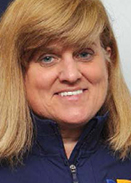
Susan Kitchen
Former Executive Director, Coaches Association of Ontario

Dr. Dan Cass
Executive Vice President and Chief Medical Executive, Sunnybrook Health Sciences Centre, Toronto
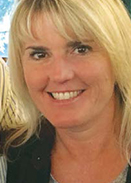
Jennifer Knox
President, Ontario Federation of School Athletic Associations
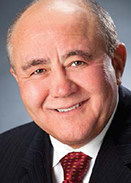
Warren Hoshizaki
Director of Education, District School Board of Niagara
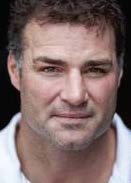
Eric Lindros
Retired NHL great and advocate for concussion research, care and awarenesso

Louise Logan
Former President and CEO of Parachute Canada, a national charity dedicated to preventing injuries
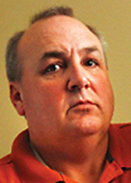
Gordon Stringer
Rowan Stringer’s father

Chris Markham
Executive Director and Chief Executive Officer, Ontario Physical and Health Education Association (Ophea)

Dr. Charles Tator
Leading educator and researcher dedicated to neurosurgery and the study of injury prevention and recovery from concussions
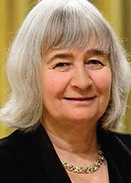
Fran Rider
President and Chief Executive Officer of the Ontario Women’s Hockey Association (OWHA)

Elisabeth White
Nurse Practitioner, Neurosurgery, The Hospital for Sick Children, with a role of educating the public on traumatic brain injury

Dr. Rosana Salvaterra
Medical Officer of Health, Peterborough Public Health
Rowan’s Law: Action Items Status
|
Theme/Action |
YearOne |
YearTwo |
YearThree |
|---|---|---|---|
|
Legislation (Action #1) |
|||
|
Enact overarching legislation governing all amateur sport that includes: |
– Comes into force |
NA | NA |
|
X |
NA | NA |
|
NA |
– Comes into force |
NA |
|
NA |
– Comes into force |
NA |
|
X |
NA | NA |
|
NA |
– Comes into force |
NA |
|
X |
NA | NA |
|
Surveillance (Actions #2, 3 & 4) |
|||
|
Public reporting to gauge effectiveness of |
NA | NA |
– To be |
|
Collection of data about removal from sport for |
NA | NA |
– To be |
|
Evaluation and compliance with concussion policy PPM 158 in schools |
X |
NA | NA |
|
Prevention (Actions #5 & 6) |
|||
|
Development and implementation of Codes of Conducts for all organized amateur sport |
X |
NA | NA |
|
Standards and accountability for ensuring that playing surfaces are safe |
NA |
– To be |
NA |
|
Detection (Actions #7 & 8) |
|||
|
Requirement for at least one person, in addition to coach(es) with specific training in concussion identification and management at all games and practices |
NA | NA
– To be |
NA |
|
Annual training for all coaches in concussions |
X |
NA | NA |
|
Management (Actions #9, 10 & 11) |
|||
|
Investment in an electronic data collection/ sharing tool for amateur sports about incidents of suspected concussion at field of play |
NA | NA |
– To be |
|
Creation of special fee codes in OHIP Schedule of Benefits for concussion assessment and management |
NA | NA | NA
– To be |
|
Creation and updating of a “Coach’s Toolkit” |
X |
NA | NA |
|
Awareness (Actions #12–18) |
|||
|
Inclusion of concussion prevention, detection and management in all teacher education training |
X |
NA | NA |
|
Re-branding of the existing Ontario.caConcussion Portal |
X |
NA | NA |
|
Investment in sustained campaign to increase awareness |
X |
NA | NA |
|
Develop and deliver concussion education annually in schools for all students |
NA |
X |
NA |
|
Annual concussion awareness education events in Public Schools on or around Rowan’s Law Day |
X |
NA | NA |
|
Mandatory annual concussion education for all teachers and administrators about the Ontario Safety Guidelines |
X |
NA | NA |
|
Health care professional faculties of medicine, nursing etc. should include concussion training in curriculum |
NA |
X |
NA |
|
Additional Actions ( #19–21) |
|||
|
Federal government to play a leadership role around concussions in both school and non-school environments |
(Ongoing) |
(Ongoing) |
(Ongoing) |
|
Federal and provincial government to work with First Nations leaders to support goals of increased safe participation in amateur sport and concussion management |
NA |
X |
NA |
|
Creation of a Rowan’s Law Concussion Partners Committee |
X |
NA | NA |
Rowan’s Law: Key Milestones and Dates
2012–13
SCHOOL YEAR 2012–13Government provided free access to Ophea’s Ontario Physical Activity Safety Standards in Education, including a concussion protocol considered to be the minimum standard for risk management practices related to concussions within Ontario school boards.
MAY 2013 Rowan Stringer died as a result of three undiagnosed concussions leading to Second Impact Syndrome.
2014
MARCH 2014 Policy/Program Memorandum 158: School Board Policies on Concussion is released.
2015
2015 Coroner’s Inquest, jury released 49 recommendations to the federal government and Ontario ministries, school boards and sport organizations.
2016
2016 The Rowan’s Law Advisory Committee was established to provide advice to MTCS on how to implement the jury’s recommendations.
2017
SEPTEMBER 2017 Rowan’s Law Advisory Committee releases its report, including 21 legislative and non- legislative recommendations for government action to improve concussion safety in amateur competitive sport.
DECEMBER 2017 Government introduced Bill 193, Rowan’s Law (Concussion Safety), 2017.
The government sought public feedback on Bill 193 through the Ontario Regulatory Registry for a period of 45 days.
Upon completion of its mandate, the Rowan’s Law Advisory Committee was dissolved.
2018
MARCH 2018 Rowan’s Law (Concussion Safety), 2018 was passed and received Royal Assent with unanimous support. Section 5 of the Act was proclaimed immediately to make Rowan’s Law Day the third Wednesday of every September.
Consultation paper seeking feedback on the general nature of the content of potential regulations under Rowan’s Law (Concussion Safety), 2018 posted on Ontario Regulatory Registry.
SEPTEMBER 2018 The first Rowan’s Law Day was recognized, to commemorate Rowan Stringer and raise awareness about concussions in sport.
An e-learning module on concussion prevention, identification and management for all school staff including educators, administrators and support staff was released.
2019
FEBRUARY 2019 Established the Rowan’s Law Concussion Partnership Committee, comprised largely of the same members as the Rowan’s Law Advisory Committee to provide advice to the government on implementing Rowan’s Law and the remaining recommendations.
MARCH 2019 Consultation paper on Draft Regulation was posted on the regulatory registry for public feedback– proposed regulation was intended to provide details and clarity about the requirements set out in the legislation.
MAY 2019 Ontario government launched its new Concussion Web Portal at Ontario.ca/concussions.
Concussion awareness resources: E-Booklets were posted on the Ontario government’s website.
The government’s marketing and concussion awareness campaign launched with a HIT. STOP. SIT concussion video in theatres on May 27th. The video is currently available on YouTube and also aired on Sportsnet during key professional sport events.
* Accompanied by social media campaign.
JUNE 2019 Final regulation posted on e-Laws.
Provincial announcement signalling upcoming proclamation of Rowan’s Law.
Press conference to launch the awareness campaign, including Hockey Hall of Famer and concussion advocate Eric Lindros, followed by a day-long media tour on June 11th.
JULY 2019 Rowan’s Law proclaimed; Two of four mandatory requirements in effect.
Education Act amended to give the Minister of Education the authority to issue mandatory concussion policies and guidelines consistent with Rowan’s Law for school boards, school authorities and provincial and demonstration schools.
Phase 2 of Rowan’s Law marketing campaign launched.
SEPTEMBER 2019 Section of Rowan’s Law requiring the Minister to release a Progress Report in force.